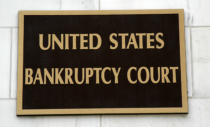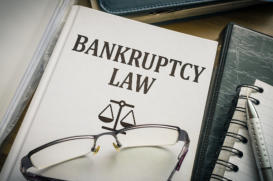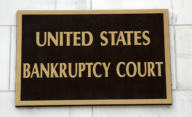SCHREIBER LAW OFFICE, LLC
2 CONVENIENT LOCATIONS
5878 Blackshire Path, Suite 8
Inver Grove Hts., MN 55076
1303 S. Frontage Rd., Suite 244
Hastings, MN 55033
RECENT DEVELOPMENTS IN BANKRUPTCY LAW
November 1, 2025
The income limits used to help determine chapter 7
eligibility were changed (see FAQ’s for more information).
November 17, 2022- Student loans
The U.S. Dept. of Justice and Dept. of Education announced new guidlines with the goal
of increasing the number of bankruptcy cases where student loans can be discharged.
July 7, 2021
A member of the Pokagon Band of Potawatomi Indians filed a chapter 7 bankruptcy. She
received monthly per capita gaming revenue payments. The trustee in her bankruptcy
case tried to argue that these future payments had to be turned over to the bankruptcy
estate. The Court ruled against the trustee and said these payments are not property
of the bankruptcy estate, and the person that filed for bankruptcy can keep them. In
re Musel.
March 27, 2020
In response to COVID-19, the C.A.R.E.S. act is signed into law. One of the provisions of the act is to provide $1,200 stimulus
payments to most adults and $500 for each child. The act specifies that these payments do not count as disposable income for
bankruptcy purposes. Separately, the act allows individuals in chapter 13 bankruptcy to extend their chapter 13 plans to up to 7
years if they choose to do so.
March 5, 2020
An individual filed for bankruptcy, and he listed as a creditor someone he had previously stabbed in an altercation at a restaurant.
The stabbing victim had been awarded damages in a civil lawsuit. The Court ruled that the debt owed to the stabbing victim
could not be discharged in the bankruptcy because it was a “willful and malicious injury.” In re Riehm.
February 4, 2020
An individual filed a chapter 7 bankruptcy, and while that chapter 7 was pending, he filed a chapter 13 bankruptcy. The Court
ruled this was a violation of the bankruptcy code’s automatic stay. Basically, you can’t have 2 bankruptcy cases active at the
same time. In re Benitez.
August 23, 2019
The HAVEN Act (Honoring American Veterans in Extreme Need) was signed into law today with bipartisan support from Congress.
Effective immediately, this law states that disability income benefits for veterans is no longer included in the disposable income
calculation for bankruptcy purposes.
February 1, 2019
The Eight Circuit Court of Appeals ruled that when a person files for bankruptcy, a judicial lien against the homestead can be
avoided. Because the judgment created a cloud on the property’s title, it impaired the homestead exemption and “fresh start”
that someone is entitled to when filing for bankruptcy. O’Sullivan v. CRP Holdings.
July 31, 2018
In a decision from the Minnesota Bankruptcy Court, the Court ruled that when someone files for bankruptcy, they can exempt and
keep life insurance proceeds of $34,000. This is true even if the money was deposited into an IRA before the bankruptcy was
filed. In re Jacklitch.
July 31, 2018
The person who filed for bankruptcy had sold her house, and had $51,860 from sale proceeds in her possession on the day the
case was filed. The Court recognized that under Minnesota law, these sale proceeds are exempt for 1 year. Because she filed for
bankruptcy within 1 year of the house sale, she could keep the money. In re Thomas.
May 3, 2018
Today a Minnesota law took effect that allows bankruptcy filers to exempt up to $25,000 for Health Savings Accounts and Medical
Savings Accounts. These accounts are becoming a popular way to save money tax-free for medical expenses.
December 17, 2017
The Bankruptcy Appellate Panel denied the discharge of a student loan. Student loans can only be discharged in bankruptcy when
repayment would constitute an “undue hardship,” and for various reasons no hardship existed in this case. Piccinino v. U.S.
Dept. of Education.
June 26, 2017
This involves a chapter 13 case. The chapter 13 plan provided that a leased vehicle with Ford Motor Credit would be paid
directly, outside of the chapter 13 bankruptcy. After the chapter 13 plan was confirmed by the Court, Ford filed a motion seeking
$3,600 in administrative expenses. The Court denied Ford’s request because the chapter 13 plan is binding on all creditors. In re
Reiser.
June 12, 2017
Generally speaking, repayments of loans to “insiders” within 1 year of filing for bankruptcy are considered preferences, and a
bankruptcy trustee may seek to have that repayment avoided. Insiders are typically relatives. Today’s case involved the
repayment of a debt to his ex-wife within that 1 year period. The trustee sought to avoid the repayment, but the Court ruled
that an ex-wife is not an insider, and the trustee’s motion was denied. In re White.
August 12, 2016
Today the Bankruptcy Appellate Panel ruled that a “pay to stay” jail fee is dischargeable in bankruptcy. In this case, an individual
filed for chapter 7 bankruptcy, and owed fees to Dakota County for room and board fees for time spent in jail. After the
bankruptcy was filed, Dakota County claimed that these fees should not be discharged in the bankruptcy because they were a fine
or penalty owed to a government unit. However, the Court concluded that this type of fee does not meet the standard to be
nondischargeable as a fine or penalty, and the debt owed to Dakota County was discharged as part of the chapter 7 bankruptcy.
Dakota County v. Milan.
March 15, 2016
An individual filed for chapter 7 bankruptcy, and at the time she filed she lived at her parents’ home. Within 180 after she filed
for bankruptcy, both of her parents passed away, and as a result she inherited an ownership interest in her parents’ home. The
Bankruptcy Code states that if someone becomes entitled to inherit property within 180 days after filing for bankruptcy, that
property becomes an asset of the bankruptcy estate, so she was subject to losing her interest in her parents’ house. So she
amended her bankruptcy schedules to list the new ownership interest, and exempted it under Minnesota’s homestead exemption,
even though didn’t own the house when she filed for bankruptcy. The trustee in her case objected to this, but the Minnesota
Bankruptcy Court ruled in her favor. The Court recognized that when someone files for bankruptcy, Minnesota law allows them to
keep up to $390,000 in homestead equity, assuming they are living at the house at the time. Because the individual in this case
was living in her parents’ house when she filed for bankruptcy, the Court ruled in her favor and allowed her to exempt her
inherited interest in the house as her homestead, even though she did not own the house when she filed for bankruptcy. In re
Walz.
September 11, 2015
An individual filed for chapter 13 bankruptcy. As part of the chapter 13, she tried to have the second mortgage lien removed and
that debt wiped out (called “lien stripping”). This may be permissible in chapter 13 when the value of the house is worth less
than what is owed on the first mortgage, making the second mortgage completely unsecured. However, her ex-husband was also
obligated for the second mortgage. Because of this, the Minnesota Bankruptcy Court concluded that she could not obtain a
release of the second mortgage. In re Brown.
April 17, 2015
A husband and wife filed separate bankruptcy petitions because they wanted to claim different exemption laws that were
available to them. The Court said this was not permissible, and consolidated their 2 cases into one, and told them to pick 1
exemption law that would be applied to both of them. Boellner v. Dowden.
January 26, 2015
A married couple filed for chapter 7 bankruptcy. Included in their list of assets was a 529 college savings plan that the husband
inherited. The beneficiaries were their 2 children. 529 plans are generally not property of the bankruptcy estate, which means
they are not subject to being turned over. The trustee argued that because the person filing for bankruptcy was not listed as the
owner if the account (his deceased mother was still listed as owner), the funds should be forfeited. However, the Minnesota
Bankruptcy Court did not agree, and ruled because the person filing for bankruptcy had a legal ownership in the account via
inheritance, it was his, and was not subject to being turned over. In re Hennessy.




MINNESOTA BANKRUPTCY LAW FIRM
(651) 554-0121
Schreiber Law Office, LLC
5878 Blackshire Path, Suite 8, Inver Grove Heights, MN 55076
1303 S. Frontage Road, Hastings, MN 55033
(651) 554-0121
We are a debt relief agency and help people file for relief under the Bankruptcy Code.
Privacy Policy


SCHREIBER LAW OFFICE, LLC

November 1, 2025
The income limits used to help
determine chapter 7 eligibility were
changed (see FAQ’s for more
information).
November 17, 2022- Student loans
The U.S. Dept. of Justice and Dept. of
Education announced new guidlines
with the goal of increasing the number
of bankruptcy cases where student
loans can be discharged.
July 7, 2021
A member of the Pokagon Band of
Potawatomi Indians filed a chapter 7
bankruptcy. She received monthly per
capita gaming revenue payments. The
trustee in her bankruptcy case tried to
argue that these future payments had
to be turned over to the bankruptcy
estate. The Court ruled against the
trustee and said these payments are
not property of the bankruptcy estate,
and the person that filed for
bankruptcy can keep them. In re
Musel.
March 27, 2020
In response to COVID-19, the C.A.R.E.S.
act is signed into law. One of the
provisions of the act is to provide
$1,200 stimulus payments to most
adults and $500 for each child. The act
specifies that these payments do not
count as disposable income for
bankruptcy purposes. Separately, the
act allows individuals in chapter 13
bankruptcy to extend their chapter 13
plans to up to 7 years if they choose to
do so.
March 5, 2020
An individual filed for bankruptcy, and
he listed as a creditor someone he had
previously stabbed in an altercation at
a restaurant. The stabbing victim had
been awarded damages in a civil
lawsuit. The Court ruled that the debt
owed to the stabbing victim could not
be discharged in the bankruptcy
because it was a “willful and malicious
injury.” In re Riehm.
February 4, 2020
An individual filed a chapter 7
bankruptcy, and while that chapter 7
was pending, he filed a chapter 13
bankruptcy. The Court ruled this was a
violation of the bankruptcy code’s
automatic stay. Basically, you can’t
have 2 bankruptcy cases active at the
same time. In re Benitez.
August 23, 2019
The HAVEN Act (Honoring American
Veterans in Extreme Need) was signed
into law today with bipartisan support
from Congress. Effective immediately,
this law states that disability income
benefits for veterans is no longer
included in the disposable income
calculation for bankruptcy purposes.
February 1, 2019
The Eighth Circuit Court of Appeals
ruled that when a person files for
bankruptcy, a judicial lien against the
homestead can be avoided. Because
the judgment created a cloud on the
property’s title, it impaired the
homestead exemption and “fresh start”
that someone is entitled to when filing
for bankruptcy. O’Sullivan v. CRP
Holdings.
July 31, 2018
In a decision from the Minnesota
Bankruptcy Court, the Court ruled that
when someone files for bankruptcy,
they can exempt and keep life
insurance proceeds of $34,000. This is
true even if the money was deposited
into an IRA before the bankruptcy was
filed. In re Jacklitch.
July 31, 2018
The person who filed for bankruptcy
had sold her house, and had $51,860
from sale proceeds in her possession on
the day the case was filed. The Court
recognized that under Minnesota law,
these sale proceeds are exempt for 1
year. Because she filed for bankruptcy
within 1 year of the house sale, she
could keep the money. In re Thomas.
May 3, 2018
Today a Minnesota law took effect that
allows bankruptcy filers to exempt up
to $25,000 for Health Savings Accounts
and Medical Savings Accounts. These
accounts are becoming a popular way
to save money tax-free for medical
expenses.
December 17, 2017
The Bankruptcy Appellate Panel denied
the discharge of a student loan.
Student loans can only be discharged in
bankruptcy when repayment would
constitute an “undue hardship,” and
for various reasons no hardship existed
in this case. Piccinino v. U.S. Dept. of
Education.
June 26, 2017
This involves a chapter 13 case. The
chapter 13 plan provided that a leased
vehicle with Ford Motor Credit would
be paid directly, outside of the chapter
13 bankruptcy. After the chapter 13
plan was confirmed by the Court, Ford
filed a motion seeking $3,600 in
administrative expenses. The Court
denied Ford’s request because the
chapter 13 plan is binding on all
creditors. In re Reiser.
June 12, 2017
Generally speaking, repayments of
loans to “insiders” within 1 year of
filing for bankruptcy are considered
preferences, and a bankruptcy trustee
may seek to have that repayment
avoided. Insiders are typically
relatives. Today’s case involved the
repayment of a debt to his ex-wife
within that 1 year period. The trustee
sought to avoid the repayment, but the
Court ruled that an ex-wife is not an
insider, and the trustee’s motion was
denied.
In re White.
August 12, 2016
Today the Bankruptcy Appellate Panel
ruled that a “pay to stay” jail fee is
dischargeable in bankruptcy. In this
case, an individual filed for chapter 7
bankruptcy, and owed fees to Dakota
County for room and board fees for
time spent in jail. After the bankruptcy
was filed, Dakota County claimed that
these fees should not be discharged in
the bankruptcy because they were a
fine or penalty owed to a government
unit. However, the Court concluded
that this type of fee does not meet the
standard to be nondischargeable as a
fine or penalty, and the debt owed to
Dakota County was discharged as part
of the chapter 7 bankruptcy. Dakota
County v. Milan.
March 15, 2016
An individual filed for chapter 7
bankruptcy, and at the time she filed
she lived at her parents’ home. Within
180 after she filed for bankruptcy, both
of her parents passed away, and as a
result she inherited an ownership
interest in her parents’ home. The
Bankruptcy Code states that if someone
becomes entitled to inherit property
within 180 days after filing for
bankruptcy, that property becomes an
asset of the bankruptcy estate, so she
was subject to losing her interest in her
parents’ house. So she amended her
bankruptcy schedules to list the new
ownership interest, and exempted it
under Minnesota’s homestead
exemption, even though didn’t own the
house when she filed for bankruptcy.
The trustee in her case objected to
this, but the Minnesota Bankruptcy
Court ruled in her favor. The Court
recognized that when someone files for
bankruptcy, Minnesota law allows them
to keep up to $390,000 in homestead
equity, assuming they are living at the
house at the time. Because the
individual in this case was living in her
parents’ house when she filed for
bankruptcy, the Court ruled in her
favor and allowed her to exempt her
inherited interest in the house as her
homestead, even though she did not
own the house when she filed for
bankruptcy. In re Walz.
September 11, 2015
An individual filed for chapter 13
bankruptcy. As part of the chapter 13,
she tried to have the second mortgage
lien removed and that debt wiped out
(called “lien stripping”). This may be
permissible in chapter 13 when the
value of the house is worth less than
what is owed on the first mortgage,
making the second mortgage
completely unsecured. However, her
ex-husband was also obligated for the
second mortgage. Because of this, the
Minnesota Bankruptcy Court concluded
that she could not obtain a release of
the second mortgage. In re Brown.
April 17, 2015
A husband and wife filed separate
bankruptcy petitions because they
wanted to claim different exemption
laws that were available to them. The
Court said this was not permissible, and
consolidated their 2 cases into one, and
told them to pick 1 exemption law that
would be applied to both of them.
Boellner v. Dowden.
January 26, 2015
A married couple filed for chapter 7
bankruptcy. Included in their list of
assets was a 529 college savings plan
that the husband inherited. The
beneficiaries were their 2 children.
529 plans are generally not property of
the bankruptcy estate, which means
they are not subject to being turned
over. The trustee argued that because
the person filing for bankruptcy was
not listed as the owner if the account
(his deceased mother was still listed as
owner), the funds should be forfeited.
However, the Minnesota Bankruptcy
Court did not agree, and ruled because
the person filing for bankruptcy had a
legal ownership in the account via
inheritance, it was his, and was not
subject to being turned over. In re
Hennessy.
RECENT DEVELOPMENTS IN BANKRUPTCY LAW


Schreiber Law Office, LLC
5878 Blackshire Path, Suite 8, Inver Grove Heights, MN
1303 S. Frontage Road, Hastings, MN
(651) 554-0121
We are a debt relief agency and help people file for relief
under the Bankruptcy Code.
Privacy Policy
Bankruptcy Law Firm
(651) 554-0121
February 4, 2020
An individual filed a chapter 7 bankruptcy, and
while that chapter 7 was pending, he filed a
chapter 13 bankruptcy. The Court ruled this was a
violation of the bankruptcy code’s automatic stay.
Basically, you can’t have 2 bankruptcy cases active
at the same time. In re Benitez.
August 23, 2019
The HAVEN Act (Honoring American Veterans in
Extreme Need) was signed into law today with
bipartisan support from Congress. Effective
immediately, this law states that disability income
benefits for veterans is no longer included in the
disposable income calculation for bankruptcy
purposes.
February 1, 2019
The Eighth Circuit Court of Appeals ruled that
when a person files for bankruptcy, a judicial lien
against the homestead can be avoided. Because
the judgment created a cloud on the property’s
title, it impaired the homestead exemption and
“fresh start” that someone is entitled to when
filing for bankruptcy. O’Sullivan v. CRP Holdings.
July 31, 2018
In a decision from the Minnesota Bankruptcy
Court, the Court ruled that when someone files
for bankruptcy, they can exempt and keep life
insurance proceeds of $34,000. This is true even
if the money was deposited into an IRA before the
bankruptcy was filed. In re Jacklitch.
July 31, 2018
The person who filed for bankruptcy had sold her
house, and had $51,860 from sale proceeds in her
possession on the day the case was filed. The
Court recognized that under Minnesota law, these
sale proceeds are exempt for 1 year. Because she
filed for bankruptcy within 1 year of the house
sale, she could keep the money. In re Thomas.
May 3, 2018
Today a Minnesota law took effect that allows
bankruptcy filers to exempt up to $25,000 for
Health Savings Accounts and Medical Savings
Accounts. These accounts are becoming a popular
way to save money tax-free for medical expenses.
December 17, 2017
The Bankruptcy Appellate Panel denied the
discharge of a student loan. Student loans can
only be discharged in bankruptcy when repayment
would constitute an “undue hardship,” and for
various reasons no hardship existed in this case.
Piccinino v. U.S. Dept. of Education.
June 26, 2017
This involves a chapter 13 case. The chapter 13
plan provided that a leased vehicle with Ford
Motor Credit would be paid directly, outside of the
chapter 13 bankruptcy. After the chapter 13 plan
was confirmed by the Court, Ford filed a motion
seeking $3,600 in administrative expenses. The
Court denied Ford’s request because the chapter
13 plan is binding on all creditors. In re Reiser.
June 12, 2017
Generally speaking, repayments of loans to
“insiders” within 1 year of filing for bankruptcy
are considered preferences, and a bankruptcy
trustee may seek to have that repayment avoided.
Insiders are typically relatives. Today’s case
involved the repayment of a debt to his ex-wife
within that 1 year period. The trustee sought to
avoid the repayment, but the Court ruled that an
ex-wife is not an insider, and the trustee’s motion
was denied. In re White.
August 12, 2016
Today the Bankruptcy Appellate Panel ruled that a
“pay to stay” jail fee is dischargeable in
bankruptcy. In this case, an individual filed for
chapter 7 bankruptcy, and owed fees to Dakota
County for room and board fees for time spent in
jail. After the bankruptcy was filed, Dakota
County claimed that these fees should not be
discharged in the bankruptcy because they were a
fine or penalty owed to a government unit.
However, the Court concluded that this type of
fee does not meet the standard to be
nondischargeable as a fine or penalty, and the
debt owed to Dakota County was discharged as
part of the chapter 7 bankruptcy. Dakota County
v. Milan.
March 15, 2016
An individual filed for chapter 7 bankruptcy, and
at the time she filed she lived at her parents’
home. Within 180 after she filed for bankruptcy,
both of her parents passed away, and as a result
she inherited an ownership interest in her
parents’ home. The Bankruptcy Code states that
if someone becomes entitled to inherit property
within 180 days after filing for bankruptcy, that
property becomes an asset of the bankruptcy
estate, so she was subject to losing her interest in
her parents’ house. So she amended her
bankruptcy schedules to list the new ownership
interest, and exempted it under Minnesota’s
homestead exemption, even though didn’t own
the house when she filed for bankruptcy. The
trustee in her case objected to this, but the
Minnesota Bankruptcy Court ruled in her favor.
The Court recognized that when someone files for
bankruptcy, Minnesota law allows them to keep up
to $390,000 in homestead equity, assuming they
are living at the house at the time. Because the
individual in this case was living in her parents’
house when she filed for bankruptcy, the Court
ruled in her favor and allowed her to exempt her
inherited interest in the house as her homestead,
even though she did not own the house when she
filed for bankruptcy. In re Walz.
September 11, 2015
An individual filed for chapter 13 bankruptcy. As
part of the chapter 13, she tried to have the
second mortgage lien removed and that debt
wiped out (called “lien stripping”). This may be
permissible in chapter 13 when the value of the
house is worth less than what is owed on the first
mortgage, making the second mortgage
completely unsecured. However, her ex-husband
was also obligated for the second mortgage.
Because of this, the Minnesota Bankruptcy Court
concluded that she could not obtain a release of
the second mortgage. In re Brown.
April 17, 2015
A husband and wife filed separate bankruptcy
petitions because they wanted to claim different
exemption laws that were available to them. The
Court said this was not permissible, and
consolidated their 2 cases into one, and told them
to pick 1 exemption law that would be applied to
both of them. Boellner v. Dowden.
January 26, 2015
A married couple filed for chapter 7 bankruptcy.
Included in their list of assets was a 529 college
savings plan that the husband inherited. The
beneficiaries were their 2 children. 529 plans are
generally not property of the bankruptcy estate,
which means they are not subject to being turned
over. The trustee argued that because the person
filing for bankruptcy was not listed as the owner if
the account (his deceased mother was still listed
as owner), the funds should be forfeited.
However, the Minnesota Bankruptcy Court did not
agree, and ruled because the person filing for
bankruptcy had a legal ownership in the account
via inheritance, it was his, and was not subject to
being turned over. In re Hennessy.

November 1, 2025
The income limits used
to help determine chapter 7 eligibility were
changed (see FAQ’s for more information).
November 17, 2022- Student loans
The U.S. Dept. of Justice and Dept. of Education
announced new guidlines with the goal of
increasing the number of bankruptcy cases where
student loans can be discharged.
July 7, 2021
A member of the Pokagon Band of Potawatomi
Indians filed a chapter 7 bankruptcy. She received
monthly per capita gaming revenue payments.
The trustee in her bankruptcy case tried to argue
that these future payments had to be turned over
to the bankruptcy estate. The Court ruled against
the trustee and said these payments are not
property of the bankruptcy estate, and the person
that filed for bankruptcy can keep them. In re
Musel.
March 27, 2020
In response to COVID-19, the C.A.R.E.S. act is
signed into law. One of the provisions of the act is
to provide $1,200 stimulus payments to most
adults and $500 for each child. The act specifies
that these payments do not count as disposable
income for bankruptcy purposes. Separately, the
act allows individuals in chapter 13 bankruptcy to
extend their chapter 13 plans to up to 7 years if
they choose to do so.
March 5, 2020
An individual filed for bankruptcy, and he listed as
a creditor someone he had previously stabbed in
an altercation at a restaurant. The stabbing victim
had been awarded damages in a civil lawsuit. The
Court ruled that the debt owed to the stabbing
victim could not be discharged in the bankruptcy
because it was a “willful and malicious injury.” In
re Riehm.
RECENT DEVELOPMENTS IN BANKRUPTCY LAW

SCHREIBER LAW OFFICE, LLC
Bankruptcy Law Firm
(651) 554-0121
Schreiber Law Office, LLC
5878 Blackshire Path, Suite 8, Inver Grove Heights, MN 55076
1303 S. Frontage Road, Hastings, MN 55033
(651) 554-0121
We are a debt relief agency and help people file for relief under the Bankruptcy Code.
Privacy Policy

























